The philosophy of the Baccalaureate Program of the Division of Nursing is reflective of the beliefs from which the NMC Mission and Core Values were formulated.
Human Being
The nursing faculty believe that human beings are holistic and diverse. Each human being has dignity and lives within a cultural context of values, religious/spiritual beliefs and social support systems. Human beings interact with the environment in which they reside through language, lifestyle and individual responsibilities. Human beings function in independent, interdependent, and/or dependent roles and may seek or receive nursing care related to disease prevention, illness care, health promotion and/or maintenance through the continuum of life.
Environment
Environment is viewed as the place where people live, grow, work, play, and experience optimal wellness of self and personal wholeness. The caring environment encompasses an obligation to both the local and global communities. The focus of the environment is also the cultivation of healing relationships, diversity, social justice, financial awareness and stewardship of resources for an ecologically healthy planet.
Health
Health is a human right and nurses promote equitable health care to maximize positive health outcomes and minimize health disparities. Overall well-being of individuals encompasses the mind, body, and spirit. Health enables human beings to live in and interface with global communities.
Nursing
Nursing is a learned and specialized profession built on applied knowledge that reflects both art and science and the culture of health. Nursing is a creative, collaborative, and interactive process steeped in the art and science of caring that require sound judgement and skills based on principles of biological, physical, behavioral, and social sciences while respecting individual views, philosophies, and spirituality. The focus of nursing is to perform preventative, supportive, and restorative actions while helping individuals, families, and communities achieve health and wellbeing. Nursing respects inherent dignity, worth and unique attributes of all people. The profession of nursing integrates knowledge gained from assessments, uses critical thinking to provide care and continually evaluates the effectiveness of nursing practice, seeking optimal outcomes.
Nurses advocate for the well-being, comfort, dignity, and humanity of all individuals, families, groups, communities, and populations. Nurses minister to human beings’ universal needs and intentional care of the spirit, by providing preventative healthcare, educating for self-care, facilitating adaptation or recovery from illness, or creating an environment supportive of a dignified death. Nurses deliver holistic individualized care throughout the lifespan and across the health illness continuum within the human’s environmental context. Nurses use interdisciplinary collaboration, technology, and scientific evidence to advance the field of nursing. Nurses advocate for social justice through creating equitable health care policies that protect human rights, promote health diplomacy, and reduce health disparities. Nurses have an ethical and social responsibility to sustain human caring where it is threatened and to be the guardians of human compassion, respect, dignity, and advocacy for the marginalized and vulnerable.
Education
The educational process is an active, collaborative partnership promoting teamwork among learners, educators, health care systems, and the broader community. The nursing faculty serve as role models in mentoring students in the role of professionalism and ethical practice. Students develop attributes of the Educated Citizen and the NMC Core Values through focused and meaningfully applied learning experiences.
Nursing Education
The nursing faculty view teaching as an interactive process empowering students to see human needs manifested in diverse beliefs, values, resources, and environments. The nursing faculty believe nursing education should nurture the students’ ability to think critically and creatively. As the world of nursing is continually evolving and rapidly changing, it is important to the nursing faculty that students learn to transfer knowledge from theory into clinical practice from one situation to another while making decisions based on critical thinking and sound clinical judgement specific to each human being.
The nursing faculty believe the curriculum is inclusive in developing students who are culturally respectful and competent practitioners able to address the health care needs of a diverse world through civic engagement. The nursing faculty emphasize excellence in integrity, accountability, courage, respect, and professional communication. As accomplished practitioners, educators, learners, researchers, and specialized professionals, nursing faculty serve as role models of self- reflection and life-long learning. The curricular framework incorporates a population-based approach that prepares students to build connections between knowledge and action in an increasingly interdependent world.



